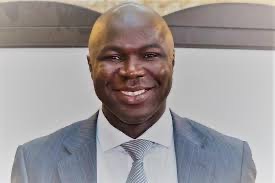
As the presidential election draws near, one cannot but sit up and look at the number of presidential aspirants. While it’s everyone’s constitutional right to vote and be voted into office, one is also tempted to ask why we are always competing in a small country like The Gambia. We have an expected voter population of just over one million people, while the number of presidential aspirants is almost 25. Is the simple majority the reasoning, or is it the luck in which some politicians became ministers by virtue of the 2016 Coalition or simply the commercialization of politics at play? Whatever the answer or school of thought one subscribes to – this begs the question, can’t we collaborate while competing – hence my subject headline – coopetition!
The coopetition strategy ensures the removal of the zero-sum game and promotion of the plus-sum game. While we can argue that this ideology is the best fit in the business world, there are no shortages of coopetition strategies in the 1990s as a political strategy. Here in The Gambia, coopetition ideology brought about change through the election in December 2016.
In the business world – while Samsung and Apple are fierce competitors – Samsung supplies Apple with components for the Apple iPhone; however, both Apple and Samsung compete in the smartphone industry (Vergara, 2012). What is the thought process and reasoning? To improve the ability to be more innovative and serve the customers better – can we link this to our politics? Yes, we can!
It’s not lost on me that all small businesses and enterprises (to which I believe the various political parties subscribe) highlight competition as the bedrock of the business world. With arguments such as customer benefits, which engenders multiple threats and risks to the companies, some would argue that coopetition would kill other businesses whilst collaborating and becoming friends, making more profits, enlarging companies, and providing equal opportunities for mutual prosperity.
For you and I availed with the new thinking hats, we can take refuge in the idea pioneered by two Harvard and Yale university professors Adam M. Brandenburger and Barry J. Nalebuf: “a new hybrid business mindset of coopetition NOT collusion is the new normal.” This takes away the concept and old age mindset that the “winner takes it all”, and “the loser is left to plan for his return.”
We need a counter-intuitive but strategically rewarding network economy of giving the country the exciting flair of competing and cooperating for the betterment of the citizenry. Let’s take a look at our political situation in The Gambia from a coopetition mindset! When we look at the aims and objectives of the Gambian political parties, the difference between one party and another is less than 20% (approximated). We could say the one that stands out is PDOIS for its socialist ideologies. But what do the others stand for? Capitalism? I am yet to hear or understand them apart from their rhetoric on agriculture, education, health, ease of transportation, regional integration, security etc. With such a little variance, why can’t the various political parties come together, each with their strengths to serve the citizenry? Imagine a government of national unity of all parties, tribes, religions, genders, and the impeccable ability of these individuals with the sole aim of improving the livelihood of the citizens. Where has our humility, love, care and warm wishes for our neighbours gone in the Gambian politics? We need to awaken this power within us by uniting with our diversities.
But what is the point in belabouring this point? The law of diminishing returns is in place, and lunch must be served. Let all those who have saved or got USD 20,000 or GMD1,000,000 know that the country is bigger and better than each of them –we are better together. Let us put aside all EGO (3 lettered word with a killer blow) and work together in some shape or form – didn’t you read on the Israel political parties coming together? Didn’t we unite in the Gambia in 2016 against former PresidentJammeh?
Finally – a band gives us a perfect example of unity in diversity towards the common good – did you see Yousou Ndure and Thione Seck at Bercy? What a hit – perfect analogy of coopetition. The smiling coast of West Africa needs and deserves better.
Ismaila BADJIE, Shipping & Logistics expert – MBA University of Liverpool
